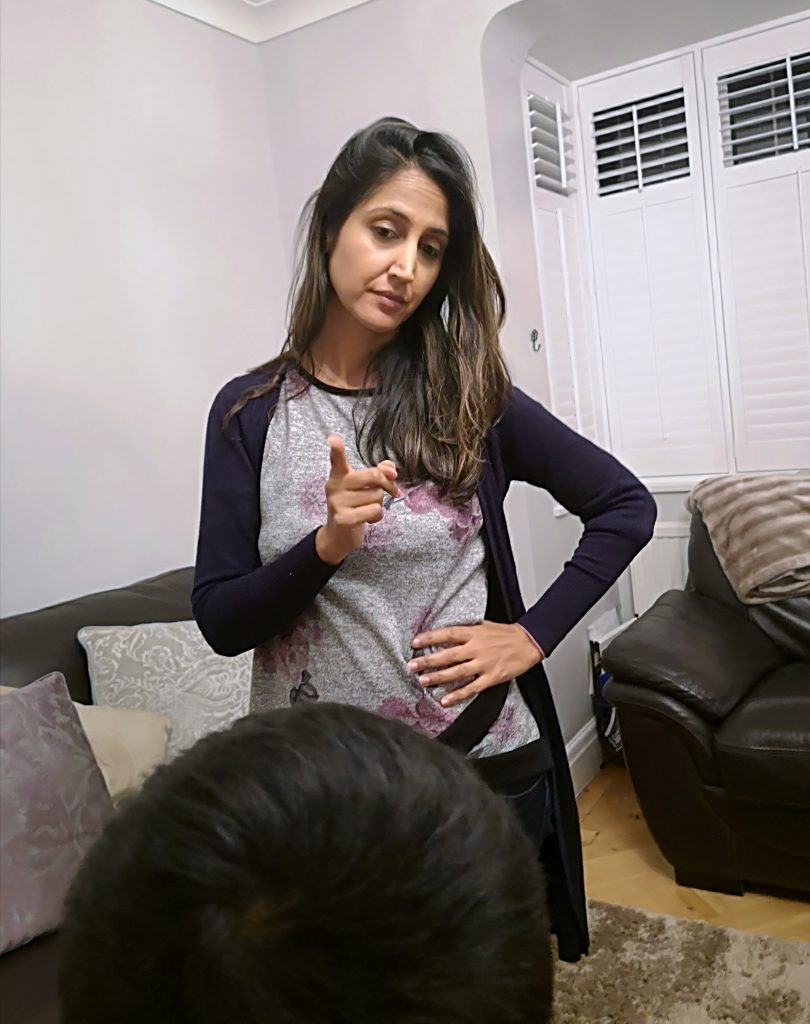Picture the scene. Somebody’s little angel has slapped your child around the face or punched him unapologetically. Or perhaps they’ve been rude or have blurted out profanities. Perhaps they’ve ignored your polite requests to stop trashing the house or even worse, placed themselves or others in danger. What do you do? How do you deal with another person’s naughty child and is it ever acceptable to discipline them?
This is undoubtedly a parenting minefield with many conflicting and impassioned views. Let’s face it, nobody likes the idea of somebody else stepping in to discipline their child. It feels like a personal attack on you, your parenting and precious offspring. It unleashes the raging lioness within. There are some who say it’s never appropriate to discipline another person’s child, but can such a blanket statement really be made?

The verb ‘to discipline’ means to train someone to obey rules or a code of behaviour. Most people I’ve spoken to are comfortable with disciplining somebody else’s child, if the parent is not around, particularly if they are in their care or home. Of course that wouldn’t entail yelling at them full pelt (as you would with your own cherished child) but it might include some firm words or a caution. After all, if you are the only adult in the scenario, somebody has to make it clear where the boundaries lie. To me this is uncontroversial, as long as the child is spoken to in a fair and calm way.
The problem arises when the parent of the offending child is present whilst the misdemeanour takes place, but doesn’t do anything to address it. No apology, no taking the child by the scruff of the neck to suitably tick him off. Nothing. What do you do then? Some would say you should not intervene and just remove your child from the situation. That is definitely an option. But I have to say, if there’s one thing that enrages me, it’s the bystander parent who just watches on as their child wreaks havoc. In those circumstances, if the parent has been given ample opportunity to address the situation, but has chosen not to, we have a problem. Whilst I appreciate it’s not ideal for me to tell your child to back off, nor is it ideal for my child to be at the receiving end of a slap, punch or insult. I have to think about what my child is learning and the messaging that they receive if another child is permitted to behave in that way towards them and nobody intervenes. In those circumstances I would tell the child, very calmly, that what they had said or done is not very kind and that we should all try to be nice to each other. That’s it. Personally, I don’t think that such an intervention is too confronting but I appreciate that some parents might not like it.
Similarly, you may be in a scenario where the misbehaving child’s parent is present but hasn’t witnessed the behaviour. My own view is, if you think it necessary, it’s acceptable to approach the other parent and relay what has happened in a non-judgemental and non-accusatory way. The key is all in the delivery. It’s then up to them what they do about it. I wouldn’t, however, then engage in a verbal spat about the importance of good behaviour or discipline, if they choose to do nothing. That would be the point at which I walk away, knowing that I’ve at least called out the bad behaviour.
I don’t think it’s anyone’s job to punish another person’s child if they misbehave –that is down to the parent. However I do think it’s acceptable to intervene and correct another child’s behaviour, if your own child is impacted and the need arises. But I would caution that this be done with kindness as none of us know the struggles that other families face. Obviously with my own kids it’s a totally different story. I can be as shouty as I like, bulge at the eyes and stomp around furiously, whilst lecturing them about bad behaviour and issuing menacing threats about confiscating the iPad. Indeed, threats form the bedrock of successful parenting. The more menacing the better, I say. But only with your own kids. Obviously.
